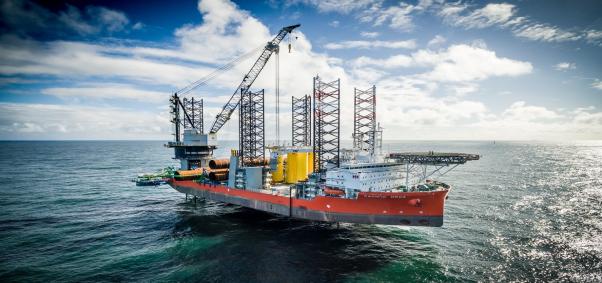
President Felipe Calderón, Chair of the Global Commission on the Economy and Climate:
Now that the Paris Agreement has been forged, the real work will begin. Governments must turn their national commitments into policy, and then implement that policy. And in so doing they will find that this is not just about fulfilling the commitments they made in Paris but that these actions are also in their economic self-interest."
Lord Nicholas Stern, Co-Chair of the Global Commission on the Economy and Climate:
"This is a historic moment, not just for us and our world today, but for our children, our grandchildren and future generations. The Paris Agreement is a turning point in the world’s fight against unmanaged climate change, which threatens prosperity and well-being among both rich and poor countries. The Agreement creates enormous opportunities as countries begin to accelerate along the path towards low-carbon economic development and growth.”
The commitment to limit the rise in global warming to well below 2 centigrade degrees, and to pursue a limit of 1.5 centigrade degrees, recognises the enormous risks we face from growing levels of carbon dioxide and other greenhouse gases in the atmosphere. And it acknowledges that the world will need to reach net zero annual emissions of greenhouse gases in the second half of the century. Importantly, the Agreement takes into account that current pledges for emissions limits in 2030 fall short of the collective ambition required and so it includes a commitment by countries to review every five years their efforts to reduce annual emissions of greenhouse gases and to ramp up their emissions cuts. And it recognises that that rich countries are expected to mobilise more financial support to help poor countries make the transition to a low-carbon economy and become more climate-resilient. Increased investments will be needed, particularly in infrastructure, and the multilateral financial institutions, such as the World Bank and the regional development banks, must play a leading role in scaling up finance and bringing down the costs of capital.
National, and local governments, cities and businesses must now raise their efforts to match the ambition of this Agreement. Cities and businesses have been strongly represented at the Paris climate change summit and have played an important role in urging governments to achieve a strong agreement, and emphasising the important role of innovation in creating a low-carbon economy. This Agreement, together with the Sustainable Development Goals, should allow countries to overcome both climate change and poverty, the two defining challenges of our generation. Now is the time for us to seize the opportunity of a brighter, low-carbon and climate-resilient future.”
Paul Polman, CEO of Unilever and member of the Global Commission on the Economy and Climate:
“The world demanded climate action and the international community has responded. Today’s agreement demonstrates without question that it is possible for us to come together in common cause to address the greatest challenges we face, preventing tragedy for the many millions of people vulnerable to the effects of climate change and securing the economic prosperity of the world in the 21st century.
The leadership shown by the French and Peruvian governments in integrating action by cities, regions, businesses and civil society alongside the formal negotiations over the past year has created an unprecedented movement of private sector action in support of an ambitious global deal. The result is an unequivocal signal to the business and financial communities, one that will drive real change in the real economy."
(For the rest of Paul Polman's statement, see: https://www.unilever.com/sustainable-living/sustainable-living-news/new…)
Sharan Burrow, General Secretary of the International Trade Union Confederation and member of the Global Commission on the Economy and Climate:
"Climate change is already destroying lives and livelihoods with more than 2.6 million people displaced by extreme weather events and changing seasons. This will only get worse.
The Paris decisions acknowledge the challenges and move global action forward, but while the Summit conclusions refer to the target of a 1.5-degree limit, the capacity to leverage ambition on the scale required to stabilise the planet is still a question for the future."
(For the rest of Sharan Burrow's statement, see: http://www.ituc-csi.org/ituc-response-to-paris-climate)
Michael Jacobs, Senior Adviser for the New Climate Economy:
“This is a historic moment. The world's governments have finally understood what the science has long been telling them - we have to act now if the earth's climate is to remain safe. Today they have committed to act - and to act together. Historians will see this as the turning point: the moment when the world started shifting decisively away from fossil fuels and towards clean and safe energy systems. Remarkably this effectively signals the end of the fossil fuel era. This is unquestionably a great success. But the work really starts now. These commitments now need to turn into policy, and policy into investment. They can congratulate themselves for 24 hours - now they need to act.”
Helen Mountford, Programme Director of the New Climate Economy:
"The Paris Agreement is a historic turning point for the low-carbon economy. It will allow us to unlock the multi-trillion dollar opportunities that come from low-carbon investment. Businesses and investors have been clamouring for a strong signal on climate action from the world’s governments, and now they have it. The agreement heralds the end of the fossil fuel era, and marks the beginning of a new, clean energy future. It will provide the basis for a wealth of new jobs and economic activity. In the emerging low-carbon economy, countries both rich and poor will be able to achieve better growth while ensuring a safer climate."






